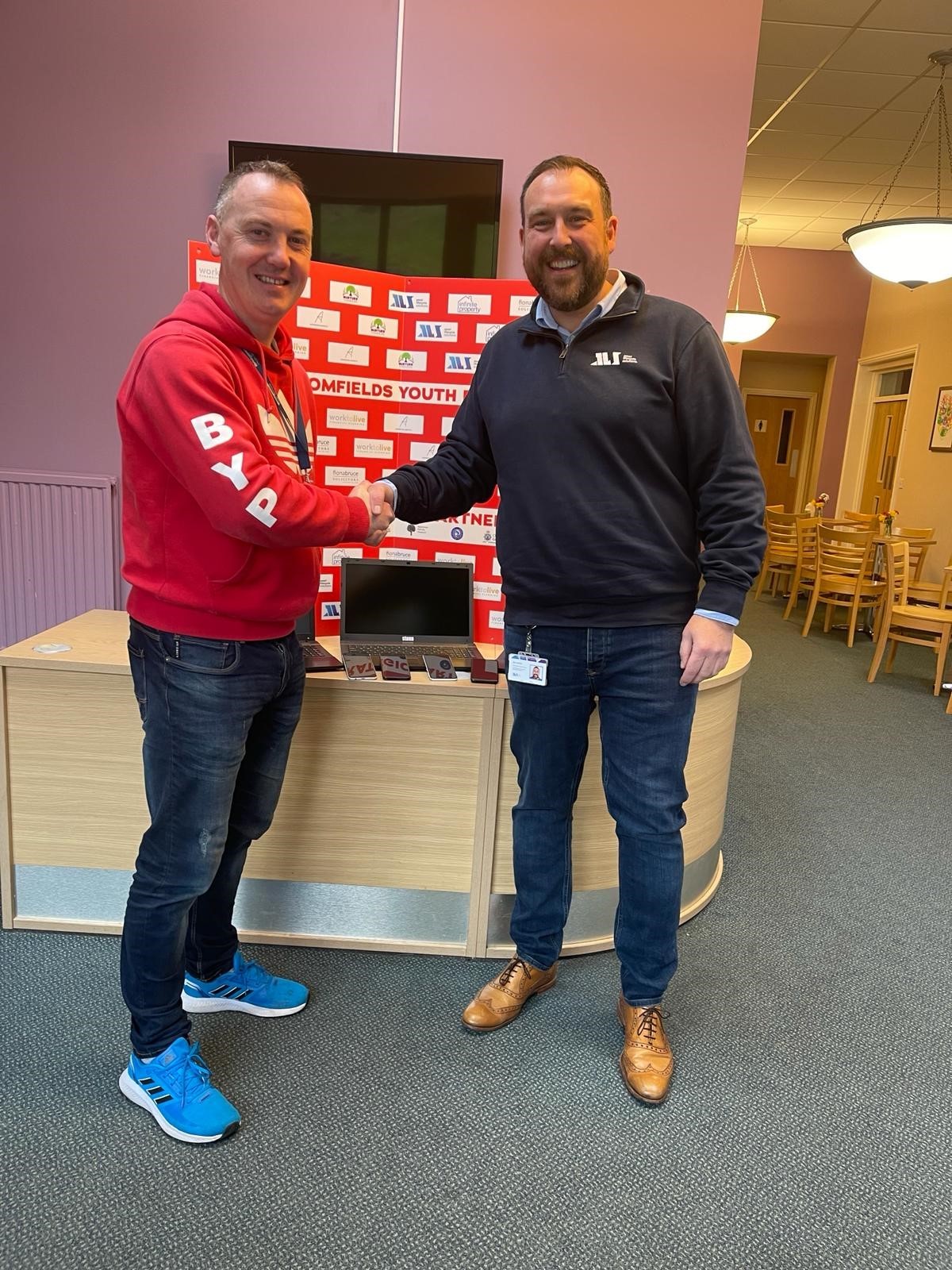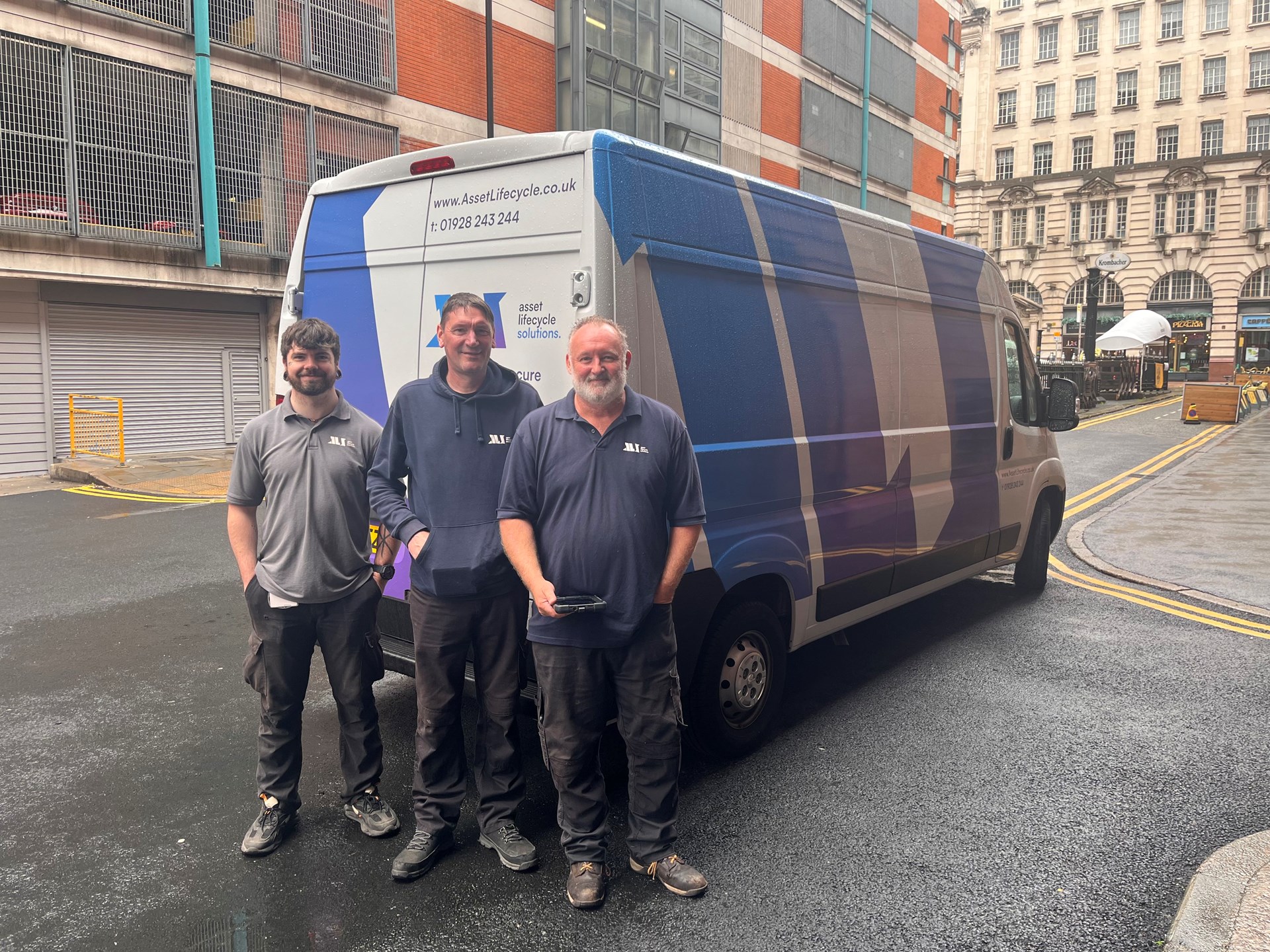
Green Economy forge new partnership for tech waste disposal firm
Read time: 3 minutes
Asset Lifecycle Solutions (ALS) launched in 2022 in Cheshire with a goal to assist organisations with their tech waste management, focussing on security, sustainability, and social value. They work with companies to track the lifecycle of the tech they dispose of, from collection to final destination, including a calculation of carbon savings compared to having sent to landfill.
Gathering a precise estimate of carbon savings associated with the average laptop in the UK is complicated, but ALS estimate that they save approximately 80 per cent KG CO2e per laptop recycled as apposed to sending it to landfill, making efficient ewaste recycling systems such as the ones they manage an impactful carbon-cutting activity.
ALS became a member of Green Economy and received our weekly member newsletter, which includes listings of green tech sales and tenders including an opportunity with our parent company, The Growth Company (GC).
Green Economy Consultant Priya Sirpal advertised the GC tech waste opportunity through our member newsletter. ALS responded to the tender and underwent an initial consultation with Priya to ensure they were a good fit.
Once the requirements were checked, Priya put ALS forward for the tender and they were subsequently selected. The project required disposal of approximately 1600 laptops to be delivered sustainably with proven carbon savings. After ALS and the Growth Company worked together, their shared interest in social value projects heightened the partnership as a number of the laptops collected by ALS were donated to a charity who provide tech to those with limited access.
“Correctly managing our electronic waste is an essential part of GC’s journey to net zero,” explains Clare Fallon, Sustainability Manager at GC. “Working with Asset Lifecycle has allowed us to track our electronic waste equipment all the way to its final destination. We now have confidence that our e-waste isn’t needlessly going to landfill.”
In addition to this project, ALS have also worked with the Growth Company to rollout Waste Electrical and Electronic Equipment (WEEE) bins around their offices and deploy a staff initiative to bring in unwanted tech to be disposed of properly.



“Security is a key issue when disposing of your unwanted tech,” explains Ben Griffin. “You need to ensure all data is properly erased. ADISA is a certification body for companies that provide IT Asset Disposal services. Any tech disposal firm worth your time should have this accreditation.”
IT Asset Disposition (ITAD) organisations need to take extra measures to avoid tech products ending up in landfill. Circular Economy schemes are designed as an alternative to exporting tech waste which will only end up in landfill elsewhere. This is a common problem with tech waste management, since after the tech is exported many firms don’t report on what happens at the end of its lifecycle. ALS is averse to this tactic. Donating to charities and upcycling is a far more sustainable and valuable solution.
“There’s a real digital divide in the UK,” Ben explains. “ALS work with schools, charities, and healthcare organisations to ensure that unwanted tech avoids landfill and goes to people who will use it. But it isn’t always easy donating tech to charities.”


To donate tech, all data must be properly wiped to avoid data protection breaches. There are also issues associated with donating technology to children, such as concerns as to how the technology will be used and child-safe technology, as well as issues of carers keeping the tech for themselves or selling it on for cash.
Donating to healthcare institutions, schools, and managed charities is a more effective solution to ensure tech is passed on to those in need and used correctly. This means it is ultimately easier to track the tech’s lifecycle too.
Do you have tech you need to dispose of? Here are some useful tips for disposing of or recycling your organisations tech:
For further tips to manage your e-waste, read our detailed guide and analysis here.